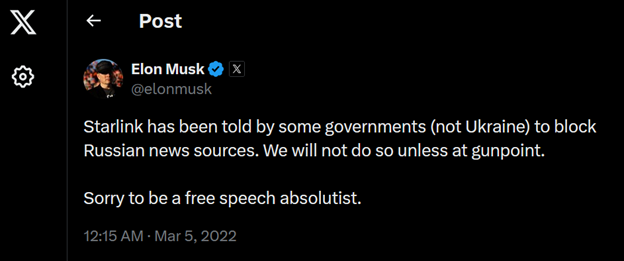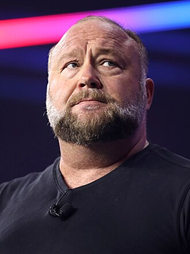
The children are listening, but do the free-speech absolutists care? The kids have far fewer defences against lies than we adults do, and it’s our responsibility to protect them. Image from Pixabay.
By James Myers
Many people now believe that free speech is a fundamental right with no limits. An extreme without a limit is called an “absolute,” and so a free-speech absolutist accepts no limits to whatever he wants to say or broadcast. The absolutist, however, seldom considers the effects of his words on children, who are the forgotten generation in the now-raging free-speech debate.
The technology and algorithms of social media platforms extend the reach of free-speech absolutists like never before in history. With the press of a button, a free-speaker can broadcast on the internet to hundreds of millions of people at no cost, whereas to reach a wide audience only a few decades ago the free-speaker would have had to overcome the far more difficult hurdle of earning TV, radio, or newspaper coverage.

Social media platform X owner Elon Musk proclaims free-speech absolutism as the reason for not blocking the spread of Russian disinformation on his Starlink satellite internet service, just two weeks after Russia’s criminal invasion of Ukraine.
To some extent, but only for an adult audience and only if it’s respectful of others, free-speech absolutism might be tolerable. A reasonable adult will forgive well-intentioned slip-ups in words, because it happens to all of us. No one is perfect, not even a free-speech absolutist, but an absolutist is particularly susceptible to slip-ups. That’s because he can produce such a prodigious volume of speech that he has little time to think about wording things exactly as the rest of us would understand them, and so errors are made.
How much and frequently can the free-speaker now broadcast with the aid of technology? For example, in the four days between November 5 and November 8, 2024, the free-speech absolutist owner of social media platform X broadcast more than 400 times his thoughts relating to politics, and his broadcasts were placed on the screens of over 200 million X users.
It’s an inescapable mathematical fact that a high output of speech and the number of errors in speech are directly correlated, because no speaker is perfect.
While respectful free-speech to an adult audience is one thing, free-speech absolutism for an audience of children is a very different matter. Consider, in particular, how a child with very basic language skills, maybe starting around the age of three, could be affected by the free-speaker’s words.

Image of conspiracy theorist Alex Jones by Gage Skidmore, on Wikipedia.
For instance, if an impressionable five-year-old had heard conspiracy theorist Alex Jones broadcast in 2010 that “The reason there’s so many gay people now is because it’s a chemical warfare operation, and I have the government documents where they said they’re going to encourage homosexuality with chemicals so that people don’t have children,” would the child not be more inclined to fear the government and gay people?
Jones is, of course, famous for spreading the outrageous falsehood that a gunman’s massacre of 20 children, aged 6 and 7 years, at Sandy Hook Elementary School in 2012 was “a total hoax” (watch his free-speech broadcast here). Although a jury penalized Jones in 2022 with $1.487 billion in damages awarded to a first responder and families of the victims (a penalty Jones didn’t pay after he declared bankruptcy), no financial penalty could undo the damage to a young listener’s perception and capacity for reasoning after hearing the vicious free-speaking lie that Jones spread ten years earlier.
After the widespread banning of Jones’ broadcasts, and a year after he escaped paying the jury’s penalty, the serial liar’s ability to broadcast on the social media platform X was unilaterally reinstated by the platform’s owner, who is the wealthiest person in the world.
Reflecting on my own youth, I was very impressionable to what was said until maybe around the age of ten, when I had gained enough experience to develop a rudimentary BS detector. Nearly 50 years later, I’m still working on fine-tuning my detector, and sometimes I catch myself spewing BS. I can’t imagine how my younger self would have reacted to lies such as Jones has spread, but I am grateful that when I was five years old the technology didn’t exist to expose my young mind to such a mind-boggling mass of BS.

This broadcast, made after the attempted assassination of the former president was, as the broadcaster later claimed, a joke. Would a five-year-old have understood that? Or would a five-year-old think it’s natural or fair game for political opponents in a democracy to be assassinated?
The kids are the ones who are being forgotten by the free-speech absolutists. It’s one thing for an adult to speak to an adult, but it’s impossible to get the kids entirely out of the room. Kids hear stuff, they see it relentlessly on their screens, and their friends tell them about it – especially so with today’s technology broadcasting everything far and wide.
Why, in the free speech debate, is no one talking about the kids?
Adult speech has a powerful effect on kids. Kids simply don’t have enough life experience to understand context, to differentiate joke-talk from serious-talk, or to assess the character of the speaker and know how much credence to give the words. It’s the job of adults, including those like me who don’t have kids of our own, to help children understand all of this as they grow and mature.
I was a kid once, as were you and everyone else. It’s often difficult to remember what it was like way back then, after all the layers of life that have piled up over the years and obscured the raw material that made you who you are and me who I am. But travel back in time and, when you find your five-year-old self, expose the younger you to what’s now online. Show your five-year-old self the content of today’s social media, the images that flood the screens, and the free-speaking words of powerful adults throwing each other under the bus for a sake of a few more likes or a few more votes.
What would you have made of all of this, at the age of five? When I travelled back to my younger self, I found a five-year-old who was both upset by and afraid of the coarse language and the speakers. I found a kid who didn’t understand how adults could call each other “worthless” or juvenile names like the ones I was throwing around in the sandbox with other kids at that age.

A day after joking about the assassination of the U.S. president and vice-president, the social media platform owner admits to a free speech slip-up (it was not his first nor was it his last).
The kids are practically defenceless against adult free-speech absolutists.
It’s inarguably and fundamentally crucial for the survival of the human race that adults bear the responsibility to protect children, to nurture their growth and development as citizens who will live happily and contribute to a happy society.
This law is so fundamental that it doesn’t need to be written in any constitution or passed by any legislature. If we adults, and generations of adults after us, took the attitude that we have little or no responsibility to protect, nurture, and make a happy future for children, then how would children survive in such a dog-eat-dog world? And what kind of an adult would it be who doesn’t value what he once was as a child, years ago? The human race wouldn’t last long that way, and if you think otherwise please tell us how, because the picture sure doesn’t look at all good to us.
The fundamental law of adult responsibility applies to all of us, to protect the children from BS.
There is one self-proclaimed free-speech absolutist who owns a social media platform that distributes his voluminous broadcasts to a very large audience. He’s also the wealthiest human in the world.
Of course, every adult member of his social media platform has a BS detector of some sort; you and I don’t have to agree with each other on exactly what BS is, we just have to think either rightly or wrongly that something is BS for it to be called “BS.” Personally, I am detecting a lot of BS lately, and others are reporting a similar experience.
The wealthiest human and owner of a social media platform tells advertisers who object to his content to “fuck themselves.”
The larger the adult audience, the more BS detectors there are to filter an absolutist’s speech. The social media platform-owner has in fact ensured that practically all of the platform’s members are given no option to reject his broadcasts, so he’s exposing himself to a great many BS detectors. That’s because the absolutist, as he describes himself, implanted an algorithm that places whatever’s on his mind onto the screens of 200 million or more viewers, whether they want to follow him or not. (See The Quantum Record’s editorial The Real and Present Dangers of Reducing Four-Dimensional Living to Two-Dimensional Screen Projections for more on his “greenlighting” algorithm).
To make it through the BS filters of everyone on an entire social media platform is no mean feat; that’s a lot of filtering, and for many people the ubiquitous broadcasts aren’t filtering very well at the moment. For the kids who see what’s on the platform – because it’s there in plain sight – are any of them equipped to filter BS on their own?
Free-speaking former Fox News celebrity Tucker Carlson defamed the manufacturer of voting machines and cost the network $787 million when it lost a lawsuit. Carlson lost his job but has since found other avenues to broadcast his views.
It’s doesn’t require a major piece of BS to cause a great deal of havoc. For many of us adults, and certainly any kid, many small fragments of BS slip by, undetected in the billions of text and social media messages circling the planet by the minute. Our adult BS detectors are overwhelmed and clogged, so a lot more BS slips through and builds up over time. It’s the accumulation of lots of BS that can cause a major stink, and judging by today’s headlines compared to, say, even ten years ago, the BS pile has grown most impressively in the last decade.
It’s safe to say that the rate of BS accretion over the past decade is at an all-time high, in the many thousands of years of human history.
The absolutists have to understand it’s not just adults they’re speaking to. If you wouldn’t want a kid to say what you’re saying, then why are you saying it?
The online BS has accumulated to a massive, festering mess, and the kids are watching and listening as adults de-humanize each other. We can only hope that the kids don’t grow up to think that de-humanization is an acceptable feature of democracy.
“Daddy, why is the former president calling the vice-president ‘shit?’” my five-year-old self might ask if I had seen some of the news of recent weeks. My dad wouldn’t have been at all pleased by my using the word “shit,” because kids turn out better when they have some sense of proportion, self-restraint, and respect for fellow humans. I know dad would have had some things to say to me, quite forcefully, about not using that word again. But I don’t think he could explain why it’s alright for a presidential candidate to call another leader a four-letter word, at the same time as he tells me I should never use that word.
Kids are extremely good picking up on contradictions. I would venture to say they’re actually quite a bit better at it than we adults are. As adults, our BS detectors have matured, but we’ve had to filter out so much BS during our lives that it becomes exhausting and so we take shortcuts and compromise. After so many compromises, adults often overlook the contradictions. But it’s the kid’s special ability to detect opposites, and we should value their ability. I suspect Mother Nature builds kids that way, knowing it will be one of our best defences in life.

How could a five-year-old know when a legislator is lying, with broadcasts like this? How could a five-year-old evaluate the intelligence, or lack of intelligence, of such a person?
If my five-year-old self had seen Congresswoman Marjorie Taylor Greene’s claim on the absolutist’s social media platform that government controls the weather, I have no doubt I would have asked my mom about it. “Mommy, why is that lady in congress saying that the government can control the weather? Didn’t you tell me nobody can control the weather, when we were camping in the rain last week?”
I can picture my mother shaking her head in exasperation, having no excuse and no will to hide the ill-informed and duplicitous statement of another adult of far greater authority. Extraordinary in her own way as my mom was, however, she was never responsible to hundreds of thousands of constituents. Maybe the lady knows more than my mom, because she’s in government? I think I would have been confused, as a five-year-old, and probably thereafter suspicious of whatever my mom or teachers or government people say about the weather.
The lady’s absurd statement, so widely broadcast, affected susceptible adults too – some of them delivered death threats to weather forecasters and federal emergency workers trying to help people to recover from two hurricanes within a month.
So whether you’re an absolutist, or against most limits, or are just in a bad mood, remember that what you do and say doesn’t stop with an adult audience. Technology makes it impossible to keep your broadcasts away from kids, and so you’re shaping young minds. Have some respect for that, because you were once a defenceless kid relying on adults to protect you.
It’s time that kids be brought into the free speech debate because they have ears and eyes too, and a longer future than the rest of us. Do we really want them to think the divisiveness they see and hear from adults is normal and what they should aspire to when they grow up?



